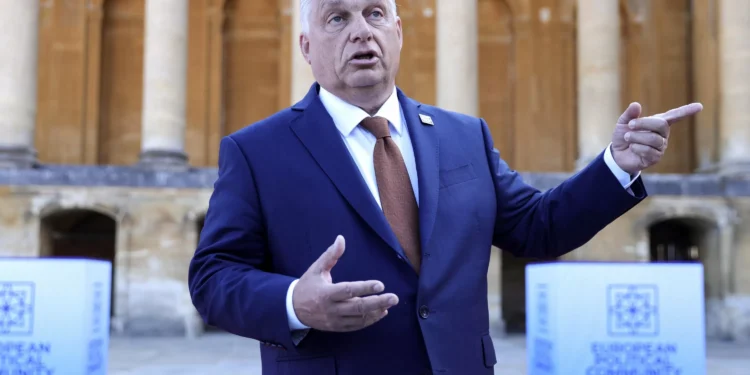The top Austrian diplomat, Foreign Minister Alexander Schallenberg, has expressed his strong opposition to any potential boycott of Hungary’s upcoming EU Council presidency under the leadership of Prime Minister Viktor Orban. In a recent statement, Schallenberg emphasized the importance of maintaining open communication and cooperation within the European Union, rather than resorting to divisive actions such as a boycott.
The Hungarian government has faced criticism and scrutiny in recent years for its policies and actions, particularly surrounding issues of democracy and human rights. Many have called for a boycott of Hungary’s EU Council presidency, which is set to begin in January 2022, as a form of protest against Orban’s government.
However, Schallenberg firmly believes that a boycott would not be an effective solution to address these concerns. He stated, “We should not let political differences hinder our cooperation and dialogue within the European Union. A boycott would only lead to further division and hinder progress on important issues.”
Schallenberg also emphasized the need for dialogue and engagement with Hungary, rather than isolation. He stated, “We must work together to find common ground and address any concerns directly with the Hungarian government. A boycott would only serve to push Hungary further away and make it more difficult to find solutions.”
The Austrian diplomat also pointed out the importance of Hungary’s role as a member of the European Union. He stated, “We must not forget that Hungary is an important member of the EU and plays a crucial role in the decision-making process. A boycott would only weaken the EU as a whole and hinder our ability to effectively address issues facing our continent.”
Schallenberg’s stance has been met with support from other EU member states, who also believe that a boycott would not be an effective way to address concerns about Hungary’s government. They have echoed Schallenberg’s sentiments, stating that open dialogue and cooperation are key to finding solutions and maintaining unity within the EU.
The Austrian diplomat’s opposition to a boycott is also in line with the EU’s overall approach to addressing concerns about Hungary’s government. The EU has previously taken steps to address issues such as the rule of law and media freedom in Hungary through dialogue and engagement rather than punitive measures.
Moreover, a boycott could have serious consequences for the EU as a whole, particularly during a time when unity and cooperation are crucial in addressing the ongoing COVID-19 pandemic and other pressing issues. It could also damage the relationship between member states and hinder progress on important issues facing the EU.
In conclusion, Foreign Minister Alexander Schallenberg’s opposition to a boycott of Hungary’s EU Council presidency is a testament to the importance of maintaining open communication and cooperation within the European Union. Instead of resorting to divisive actions, it is imperative that member states work together to find solutions and address concerns directly. A boycott would only serve to weaken the EU and hinder progress, and it is crucial that all member states, including Hungary, continue to work towards a united and prosperous Europe.



